Some predictions do not stand the test of time. It's been just over a year since Pep Guardiola declared Vincent Kompany's destiny to coach Manchester City. It seemed more likely that he would first take charge of Chelsea or Tottenham, two major clubs who showed interest in hiring him. Instead, his fate at Tottenham changed in May 2024; Saturday's defeat confirmed Burnley's relegation.
Despite a rebound in March and April, it had felt inevitable for months. But if points had been deducted against Everton and Nottingham Forest, Burnley would have been further adrift sooner. But if the reality that Luton and Sheffield United, who were promoted alongside them, will also book their return tickets to the Championship would suggest that they were powerless to prevent this, that the gap between the economies of the two divisions is too great is to bridge, Burnley would be a different case.
In their own way, theirs ranks as one of the Premier League's worst ever relegations. A team that achieved 101 points last season, a club that spent more than £100 million last summer, a side that managed just two wins against the 17 established top teams - the other three were against Luton or Sheffield United - Burnley should have done that much better than this. The £100m relegations are rare, although Leeds and Southampton were in that group last season, but this year Burnley are in a weaker bottom six, with just 24 points.
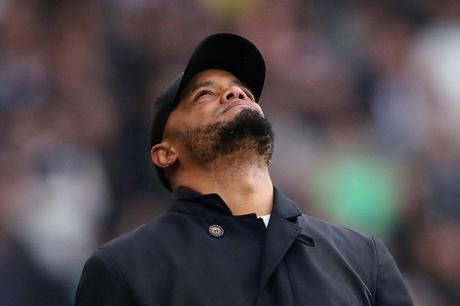
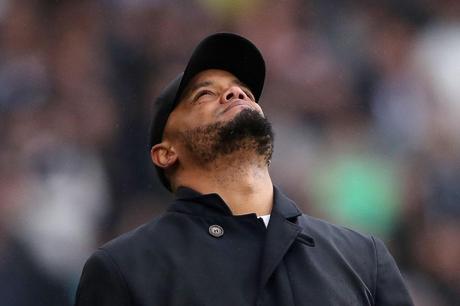
Their season was an exercise in naivete. They were naive in the transfer market, naive on the pitch and, by extension, naive in the boardroom. Their campaign can be summed up in two results: home and away defeats to Sean Dyche's Everton. They lost at Turf Moor due to set pieces. They were defeated at Goodison Park due to a ridiculous mistake from Aro Muric. Dyche, Kompany's famously pragmatic predecessor, is also his opposite: he earned Everton twice as many points as his old club, even though their 48 was reduced to 40 by deduction.
If there are three pillars to the Dyche blueprint for survival, they are probably home form, set-piece expertise and avoiding mistakes. Burnley were unlucky to have the toughest Turf Moor games at the top of the fixture list, but they lost their first seven in a row at home; they jointly have the fewest home wins and points, with the fewest goals scored.
The story continues
They conceded sixteen goals on set pieces and scored only five, the lowest total; in 2017/18, Dyche's Burnley let in just six goals from dead-ball situations. If the tendency to foolishly give away goals was summed up in the week when Muric gave in by throwing a ball into Dominic Calvert-Lewin at Everton and then slipping a back pass under his studs against Brighton, there were plenty of others; if Burnley could have even halved the number of avoidable concessions they might have had a chance. As it is, they have already scored 23 more goals than in 2021/22, when they went down in more boring fashion.
And while most are the product of a more ambitious style of play that sometimes earned critical acclaim, too often Burnley weren't good enough at it, undermining themselves and perhaps overestimating their own ability to carry it off. Rewind to August and Kompany argued that their opening day performance, in a 3-0 defeat to City, would be the worst performance Burnley produced all season. He was completely wrong.
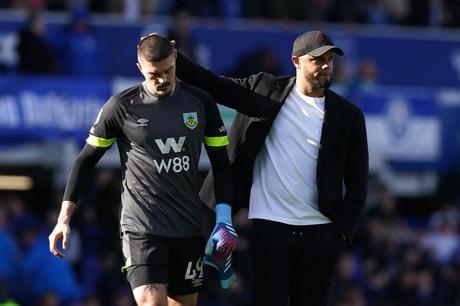
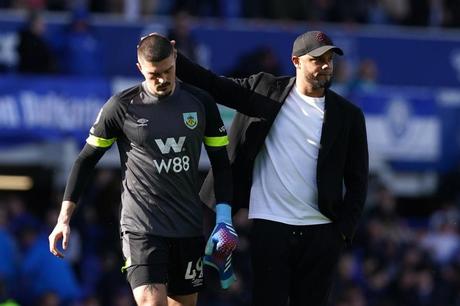
But while they were the club that forgot the basics, they also lost some of the essence of their success last season. Kompany thought it would take 120 training sessions and 100 meetings before players understood his football; it begs the question why there were so many signings and why some of the stalwarts of his promotion-winning side were marginalised.
Muric, apart from those high-profile blunders, was an improvement on James Trafford but was sidelined for most of the season. Josh Cullen was regularly on the bench as Burnley continued to lose without him. Curiously, Anass Zaroury and Manuel Benson, two of the Championship's breakout stars from last season, were given one league start each. Twelve months ago, every winger seemed capable of being a hugely profitable sell or a Premier League match-winner. Now they don't.
And Burnley's strategy to discover talent and create value has backfired. It's difficult to spend £100m on players with such anonymity. Perhaps only the gifted Luca Koleosho looked like a coup that could bring in a much larger amount of money; Jacob Bruun Larsen and David Datro Fofana, who have shown an eye for goal, are only loaned out.
In contrast, Burnley will pay £13 million for Mike Tresor, whose return will bring no goals and no assists. It matches the stats of £14m midfielder Aaron Ramsey. Then there was Trafford, another bet on potential and who ultimately fell. Burnley ignored the importance of Premier League experience, even courting Andros Townsend and not signing him despite bringing in a host of other wingers. Last summer they brought in seventeen players, but still left a hole in their squad.
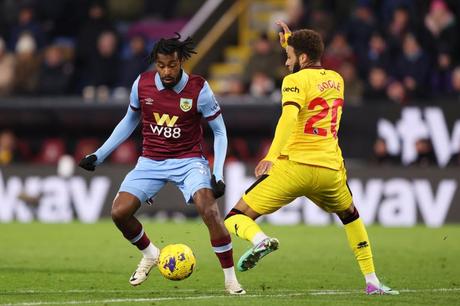
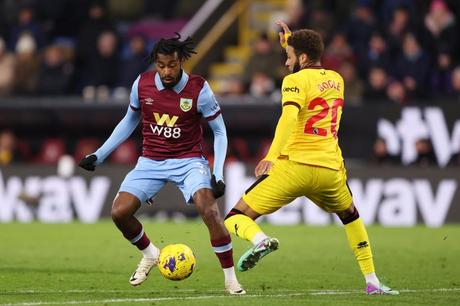
Burnley spent a fortune and still somehow started the season without the left back they needed. Admittedly, it didn't help that the left-back they had last season, Ian Maatsen, will be in a Champions League final, just as a winger they had then, Nathan Tella, won the Bundesliga. Burnley had tried to buy both. Add to that a 2022-2023 loanee, Taylor Harwood-Bellis, a better centre-back than Kompany has been able to call upon this year, and the disappearance of Benson and Zaroury and Burnley have paid out more than £100m and have managed to finish with a weaker team than they had in the championship.
While idealism was the recurring theme in Burnley's blueprint, naivete is a common denominator in the autopsy of their campaign. They underestimate the Premier League. This also applies to Kompany, who won the title as captain and left as manager. He may not receive such tempting offers this summer. He has four years left on the five-year deal he signed last year; it could be a reason why Burnley backed him, but it could also be because chairman Alan Pace has appeared under his manager's spell. But with Kompany's stamp on this team, another manager might not have been able to keep up with them either.
But the feeling of failure must be shared. Pace has completed two full seasons as a Premier League owner. Burnley has been relegated in both cases. Given the size of the club and the challenges faced by the promoted sides, this was always a possibility. But with sales certain to be needed and the value of most of Burnley's players falling, relegation seems particularly damaging. Their season comes down to a very costly mistake.
